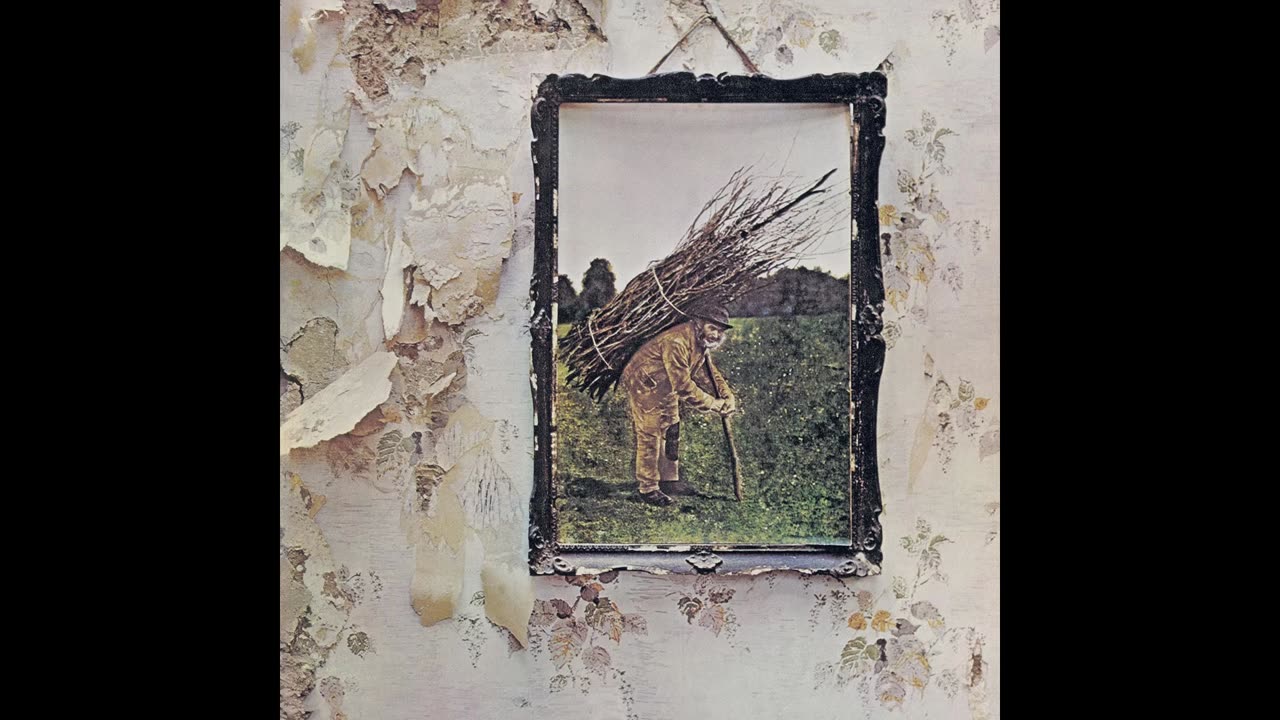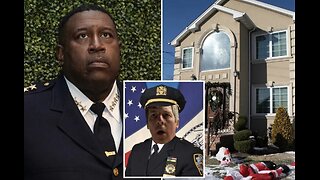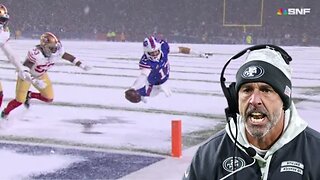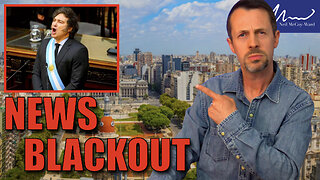Premium Only Content

Led Zeppelin - IV ZOSO ( Full Album )
Led Zeppelin - IV ZOSO
Released 8 November 1971
Recorded December 1970 – February 1971
Studio
Rolling Stones Mobile at Headley Grange, Headley
Island Studios, London
Sunset Sound, Los Angeles
Genre
Hard rock heavy metal
Length 42:37
Label Atlantic
Producer Jimmy Page
1 Black Dog 4: 55
2 Rock And Roll 3: 40
3 The Battle Of Evermore 5: 38
4 Stairway To Heaven 7: 55
5 Misty Mountain Hop 4: 39
6A Four Sticks 4: 49
6B Four Sticks (Alternate Mix)
7 Going To California 3: 36
8 When The Levee Breaks 7: 08
8B When The Levee Breaks (Alternate U.K. Mix)
Led Zeppelin were an English rock band formed in London in 1968. The band comprised Robert Plant (vocals), Jimmy Page (guitar), John Paul Jones (bass and keyboards) and John Bonham (drums). With a heavy, guitar-driven sound and drawing from influences including blues and folk music, Led Zeppelin are cited as a progenitor of hard rock and heavy metal. They significantly influenced the music industry, particularly in the development of album-oriented rock and stadium rock.
Led Zeppelin evolved from a previous band, the Yardbirds, and were originally named "the New Yardbirds". They signed a deal with Atlantic Records that gave them considerable artistic freedom. Initially unpopular with critics, they achieved significant commercial success with eight studio albums over ten years. Their 1969 debut, Led Zeppelin, was a top-ten album in several countries and features such tracks as "Good Times Bad Times", "Dazed and Confused" and "Communication Breakdown". Led Zeppelin II (1969), their first number-one album, includes "Whole Lotta Love" and "Ramble On". In 1970, they released Led Zeppelin III which opens with "Immigrant Song". Their untitled fourth album, commonly known as Led Zeppelin IV (1971), is one of the best-selling albums in history, with 37 million copies sold. It includes "Black Dog", "Rock and Roll" and "Stairway to Heaven", with the latter being among the most popular and influential works in rock. Houses of the Holy (1973) includes "The Song Remains the Same" and "Over the Hills and Far Away". Physical Graffiti (1975), a double album, features "The Rover" and "Kashmir".
Page composed most of Led Zeppelin's music, while Plant wrote most of the lyrics. Jones occasionally contributed keyboard-focused parts, particularly on the band's final album. The latter half of their career saw a series of record-breaking tours that earned the group a reputation for excess and debauchery. Although they remained commercially and critically successful, their touring and output, which included Presence (1976) and In Through the Out Door (1979), declined in the late 1970s.
After Bonham's death in 1980, the group disbanded. The former members have sporadically collaborated and participated in one-off concerts, including the 2007 Ahmet Ertegun Tribute Concert in London, with Bonham's son Jason Bonham on drums.
Led Zeppelin are one of the best-selling music artists of all time, with estimated record sales of between 200 and 300 million units worldwide. They achieved eight consecutive UK number-one albums and six number-one albums on the US Billboard 200, with five of their albums certified Diamond in the US by the Recording Industry Association of America (RIAA). Rolling Stone described them as "the heaviest band of all time", "the biggest band of the seventies", and "unquestionably one of the most enduring bands in rock history". They were inducted into the Rock and Roll Hall of Fame in 1995; the museum's biography states that they were "as influential" in the 1970s as the Beatles were in the 1960s.
In 1966, London-based session guitarist Jimmy Page joined the blues-influenced rock band the Yardbirds to replace bassist Paul Samwell-Smith. Page soon switched from bass to lead guitar, creating a dual lead guitar line-up with Jeff Beck. Following Beck's departure in October 1966, the Yardbirds became a four-piece with Page as the sole guitarist. This new line-up recorded an album, Little Games, in 1967, before embarking on a tour of the United States, during which they performed several songs which would later be part of Led Zeppelin's early repertoire, including covers of Johnny Burnette's "Train Kept A-Rollin'" and "Dazed and Confused", a song originally written and recorded by Jake Holmes. In early April 1968, the Yardbirds held a recording session at Columbia Studios in New York City, recording a number of tracks including a Page-Relf composition initially titled "Knowing That I'm Losing You", which would eventually be re-recorded by Led Zeppelin as "Tangerine".
The Yardbirds' 1968 tour proved to be exhausting for the band. Drummer Jim McCarty and vocalist Keith Relf aimed to embark in a more acoustic direction, forming a folk rock duo called Together, whereas Page wanted to continue the heavier blues-based sound of the Yardbirds. Page, with the support of the Yardbirds' new manager Peter Grant, planned to form a supergroup with Beck and himself on guitars, and the Who's Keith Moon and John Entwistle on drums and bass, respectively. Vocalists Steve Winwood and Steve Marriott were also considered for the project. The group never formed, although Page, Beck, and Moon did record a song together in 1966, "Beck's Bolero", in a session that also included bassist-keyboardist John Paul Jones.
The Yardbirds played their final gig on 7 July 1968 at Luton College of Technology in Bedfordshire. They were still committed to several concerts in Scandinavia, so McCarty and Relf authorised Page and bassist Chris Dreja to use the Yardbirds' name to fulfill the band's obligations. Page and Dreja began putting a new line-up together. Page's first choice for the lead singer was Terry Reid, but Reid declined the offer and suggested Robert Plant, a singer for the Band of Joy and Hobbstweedle. Plant eventually accepted the position, recommending former Band of Joy drummer John Bonham. John Paul Jones enquired about the vacant position of bass guitarist, at the suggestion of his wife, after Dreja dropped out of the project to become a photographer. Page had known Jones since they were both session musicians, and agreed to let him join as the final member.
In August 1968, the four played together for the first time in a room below a record store on Gerrard Street in London. Page suggested that they attempt "Train Kept A-Rollin'", originally a jump blues song popularised in a rockabilly version by Johnny Burnette, which had been covered by the Yardbirds. "As soon as I heard John Bonham play", Jones recalled, "I knew this was going to be great ... We locked together as a team immediately". Before leaving for Scandinavia, the group took part in a recording session for the P. J. Proby album Three Week Hero. The album's track "Jim's Blues", with Plant on harmonica, was the first studio track to feature all four future members of Led Zeppelin.
The band completed the Scandinavian tour as the New Yardbirds, playing together for the first time in front of a live audience at Gladsaxe Teen Club at the Egegård School (today Gladsaxe School) festive hall, Gladsaxe, Denmark, on 7 September 1968. Later that month, they began recording their first album, which was based on their live set. The album was recorded and mixed in nine days, and Page covered the costs. After the album's completion, the band were forced to change their name after Dreja issued a cease and desist letter, stating that Page was allowed to use the New Yardbirds moniker for the Scandinavian dates only. One account of how the new band's name was chosen held that Moon and Entwistle had suggested that a supergroup with Page and Beck would go down like a "lead balloon", an idiom for being very unsuccessful or unpopular. The group dropped the 'a' in lead at the suggestion of Peter Grant, so that those unfamiliar with the term would not pronounce it "leed". The word "balloon" was replaced by "zeppelin", a word which, according to music journalist Keith Shadwick, brought "the perfect combination of heavy and light, combustibility and grace" to Page's mind.
Grant secured a $143,000 advance contract ($1,253,000 today) from Atlantic Records in November 1968—at the time, the biggest deal of its kind for a new band. Atlantic was a label with a catalogue of mainly blues, soul, and jazz artists, but in the late 1960s, it began to take an interest in British progressive rock acts. At the recommendation of British singer Dusty Springfield, a friend of Jones who at the time was completing her first Atlantic album, Dusty in Memphis, record executives signed Led Zeppelin without having ever seen them. Under the terms of their contract, the band had autonomy in deciding when they would release albums and tour and had the final say over the contents and design of each album. They would also decide how to promote each release and which tracks to release as singles. They formed their own company, Superhype, to handle all publishing rights.
-
 LIVE
LIVE
LFA TV
15 hours agoBOMBSHELL FINAL REPORT: BIDEN ADMIN SUPPRESSED WUHAN LAB LEAK | LIVE FROM AMERICA 12.27.24 11am EST
1,889 watching -
 43:07
43:07
Grant Stinchfield
1 hour agoWe Built it... China Controls it... Trump Will Take it Back!
1132 -
 35:05
35:05
Rethinking the Dollar
1 hour agoTime to Pay the Piper! Debt Refinance Coming in 2025
4041 -
 52:34
52:34
PMG
14 hours ago $1.37 earnedHannah Faulkner and Steve Friend | EXPOSE THE FBI CORRUPTION - KASH PATEL
3.05K1 -
 2:58:58
2:58:58
Wendy Bell Radio
7 hours agoOn Day One
62.3K61 -
 1:59:27
1:59:27
Jeff Ahern
3 hours ago $3.04 earnedFriday Freak out with Jeff Ahern (6am Pacific)
20.2K -
 1:56:07
1:56:07
Game On!
12 hours ago $1.28 earnedJosh Allen is the NFL MVP! It's not even close!
16.4K2 -
 13:05
13:05
Neil McCoy-Ward
3 hours agoWhy The Media Won't Tell You What Milei Did In Argentina...
17.6K1 -
 3:56:44
3:56:44
Alex Zedra
15 hours agoLIVE! Trying to get achievements in Devour
213K28 -
 2:00:43
2:00:43
The Quartering
18 hours agoThe MAGA Wars Have Begun! Vivek & Elon Get Massive Backlash & Much More
221K136